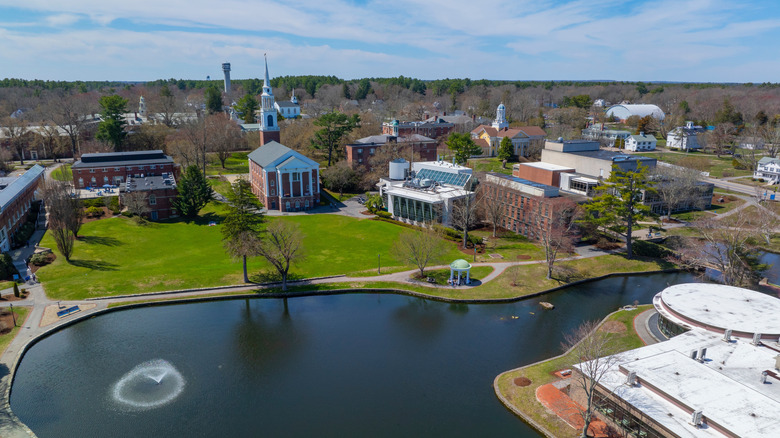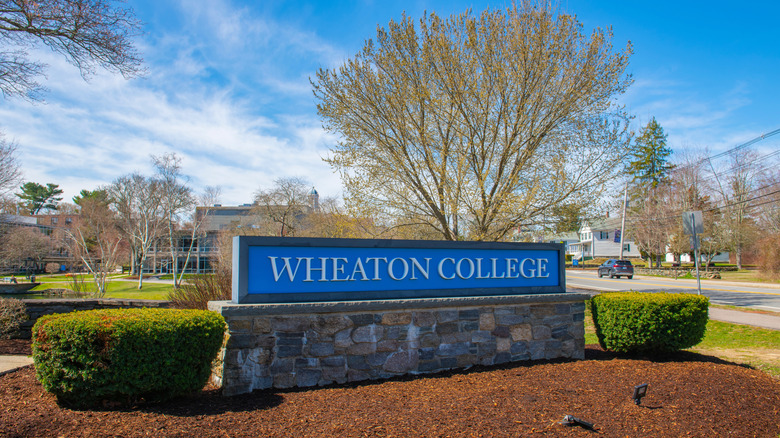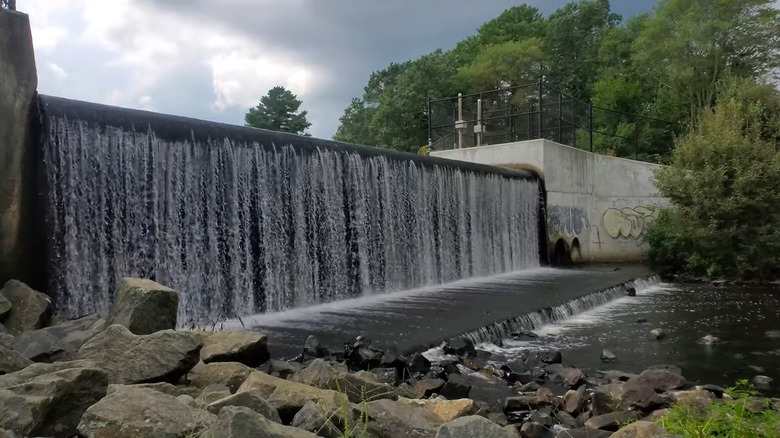Massachusetts' Relaxed College Town Is A Delightfully Cozy, Family-Friendly Destination Nestled In Natural Beauty
There's something uniquely inviting about towns shaped by the steady presence of a college. Norton, Massachusetts, strikes a balance between vibrant student life and the inviting warmth of small-town living. The town is comfortably tucked into Bristol County and just a short drive from Boston, with it being 38 miles away. It officially became a town on June 12, 1711, after settlers in the Taunton North Purchase petitioned for their own church and civic center.
Visitors will find that Norton makes settling in easy. Extended Stay America offers home-like suites with full kitchens, ideal for longer visits or those attending nearby events. For those who want something more quaint, Josiah Keith House in neighboring Easton provides a more intimate, historic experience inside an 18th-century farmhouse. The town's appeal extends beyond its heritage and academic ties, too. With a wealth of natural resources, from scenic parks to tranquil waterways, Norton is a place where nature is never far away.
Looking into Norton's history and college culture
America's northeastern states have plenty of places that are anchored by an academic institution. Take Amherst, a quintessential college town with rolling hills and terrific stays, or Cambridge, which is known for its ivy-clad campus, fall festivals, and autumn flavors. For Norton, Massachusetts, Wheaton College plays a central role in shaping the town's character.
Wheaton, a small liberal arts institution, is home to about 1,739 undergraduates and offers more than 100 academic programs. For visitors, the campus is an appealing part of Norton to explore, and Wheaton regularly welcomes guests, offering daily tours and information sessions. Its central lawn, known as "The Dimple," is a gathering place for students and a pleasant spot for a stroll, and traditions like the annual Head of the Peacock Regatta on the campus pond also highlight the school and town's culture. Larger events such as preview days and open houses are also available for prospective students and curious visitors alike.
Beyond the campus, the Norton Center reflects the college's presence with cafés, restaurants, and local shops frequented by students and visitors. Together, the town and the college shape each other, creating a place that feels both rooted in history and alive with the energy of new ideas. The town's past is preserved just a short distance away at the Norton Historical Society, housed in the Old School House on West Main Street. Founded in 1960, the society collects artifacts, documents, and oral histories, offering exhibits and programs that help visitors understand Norton's early settlement, industries, and evolving identity.
Nature attractions and animal sanctuary in Norton
From Hull's charming peninsula town and gorgeous beaches to Gloucester's beautiful coast, Massachusetts is littered with natural beauty. In Norton, outdoor recreation feels effortless. The Norton Reservoir, spanning 580 acres, was created in the late 1860s when the Rumford River was dammed for industrial use, and is a perfect place to admire nature. After decades of private ownership and environmental challenges, the town purchased it in 1986, mainly to restore its ecological health and reopen it for recreation. Today, it's a peaceful spot for boating, fishing for largemouth bass and northern pike, kayaking, and paddleboarding. Those who have motorized boats can launch at Juniper Road, while smaller crafts can use Sunset and Alder Roads. Some fauna that can be spotted from the reservoir include great blue herons, snapping turtles, and even bald eagles along its shores.
Nature lovers can also explore Crane Farm Preserve and King Philip's Cave, both ideal for walks and wildlife watching. Crane Farm Preserve features wooded trails and forested lands, supporting animals such as turtles, otters, and frogs. Meanwhile, King Philip's Cave offers a short hike to a notable rock formation tied to local history, which adds a layer of historical interest to the outdoor experience.
Animal enthusiasts will find a meaningful stop at Winslow Farm Animal Sanctuary, a nonprofit established in 1996 that rescues. Open to the public since 1997, the sanctuary offers opportunities to meet its residents (including horses, donkeys, and cats) up close and hosts educational tours focused on animal welfare and habitat preservation.


